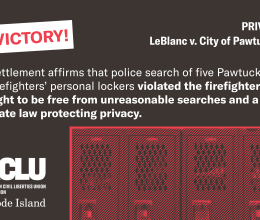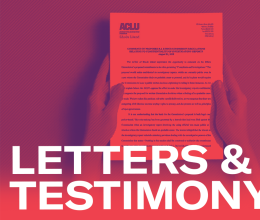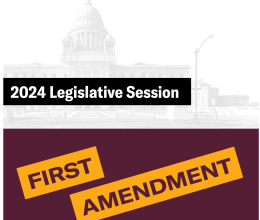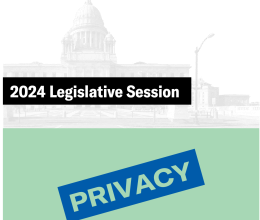The RI ACLU has called on Governor Lincoln Chafee to veto legislation that would allow police to obtain Internet subscriber service information without the need of a warrant or other judicial oversight. In a letter to the Governor, the ACLU argues that enactment of the bills, S-781A and H-5093A, “would not only lead to a very serious erosion of privacy rights, but will also have a chilling impact on freedom of speech.”
Presently, police must obtain a judicial search warrant to obtain personal information of Internet users. Under the bill, however, police would merely need to themselves certify that they are investigating a computer-related crime, and Internet service providers would be required to turn over subscriber information to them. The ACLU letter notes: “While ignoring the warrant process certainly does make police work easier, it does so at enormous expense to individual liberties and the safeguards that the warrant process protects.” The ACLU emphasized the importance of having a neutral magistrate review the request for information in order to ensure that there is probable cause of criminal activity and a person’s privacy is not unnecessarily invaded.
In addition to basic privacy objections, the ACLU raised concerns about the bill’s chilling impact on free speech activity. Among other things, the bill includes within its scope broadly-designated misdemeanor offenses such as “cyberharassment,” which will open the door for wide-ranging subpoenas, without any court oversight, based directly on a computer user’s free speech activity over the Internet. This could have a serious chilling impact on political free speech activities. In fact, that concern has prompted the Rhode Island Press Association to also oppose the bill.
As the ACLU letter notes:
In at least two cases in the past year, police sought to obtain ISP information based solely on online comments made about political figures. Last August, for example, police sought to obtain from the Barrington Times the ISP address of an online commenter critical of the Town Manager. A clearly rhetorical aside that the official should be careful what was in “that meatball sandwich you are eating” was deemed “potentially threatening.” In a second case, Narragansett police brought cyberstalking charges (later dropped) against two individuals who posted admittedly crude remarks about political figures. Passage of this bill would make investigations like these even more prevalent, creating a truly chilling effect on online speech. When one considers that police have also expressed interest in using this bill to investigate crimes of “cyberharassment” in the school setting, the impact of this power becomes even more troubling.
Although the only information that law enforcement will be able to directly obtain is so-called non-content information, the ACLU noted that obtaining that information will lead to wide-ranging searches of people’s computers and their contents, which is the point of obtaining the subscriber information in the first place. The ACLU is hoping for a favorable response from the Governor.






